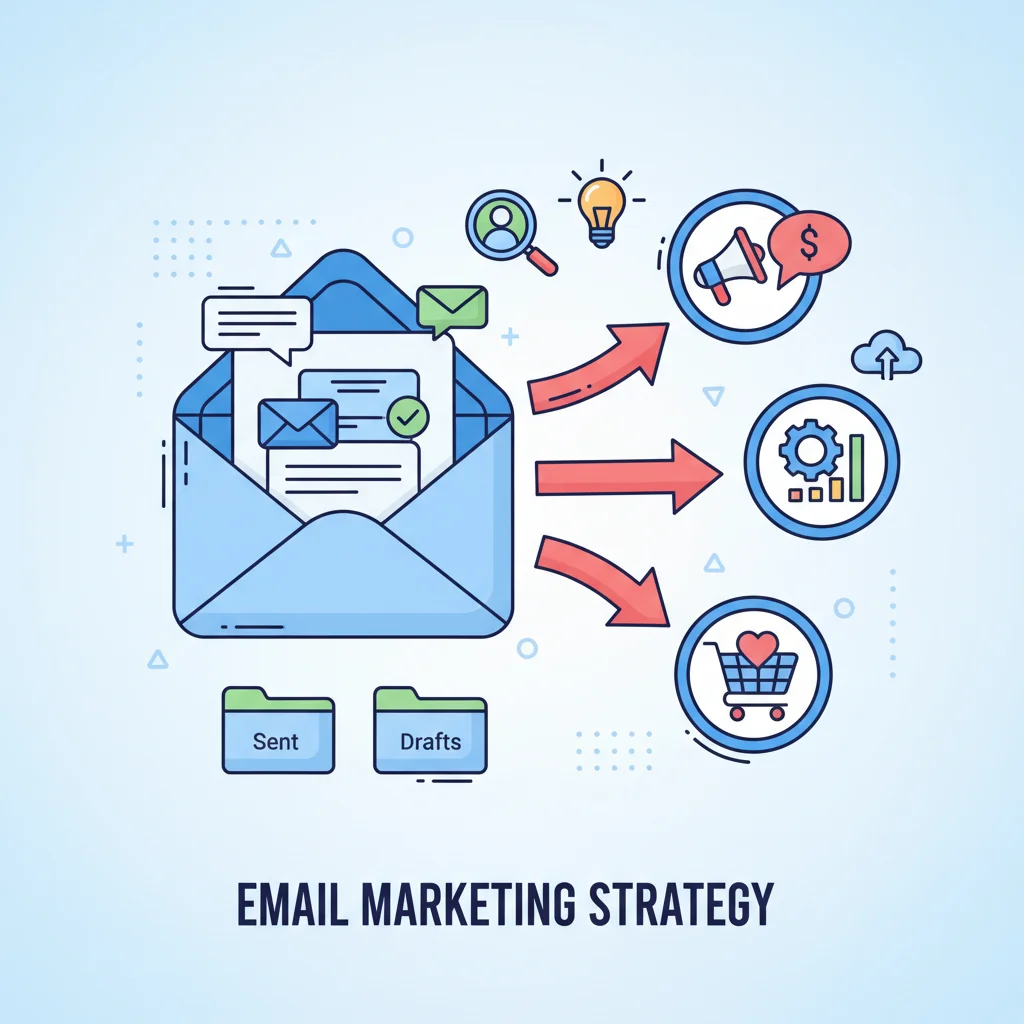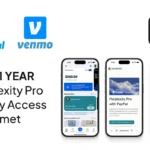Now Reading: 10 Best Email Marketing Platforms For Enterprises: Expert Picks
-
01
10 Best Email Marketing Platforms For Enterprises: Expert Picks
10 Best Email Marketing Platforms For Enterprises: Expert Picks

Ever sent an email campaign to thousands of subscribers only to watch it disappear into the void? For enterprise businesses, the stakes of email marketing failures are exponentially higher. When you’re managing millions of contacts and complex automation workflows, you need more than just a basic email tool – you need one of the best email marketing platforms for enterprises that can scale with your ambitions and deliver measurable results.
Insider
Insider stands as a powerhouse among enterprise email marketing solutions, offering a unified platform that extends far beyond basic email capabilities. What sets Insider apart is its comprehensive approach to cross-channel marketing.
Key Features
- True enterprise CDP that unifies customer data from all online and offline sources
- AI-powered personalization for tailored content, messaging, and product recommendations
- Cross-channel campaign management across email, SMS, WhatsApp, and push notifications
- Advanced automation workflows with hyper-personalization capabilities
- Predictive analytics to forecast customer behaviors and optimize campaigns
Pricing
Insider operates on a custom pricing model tailored to enterprise needs. While they don’t publish specific rates, their enterprise plans typically start at around $3,600/month with a one-time onboarding fee.
Pros
- Comprehensive all-in-one platform that eliminates the need for multiple tools
- Powerful AI capabilities for predictive segmentation and personalization
- Exceptional cross-channel integration for consistent customer experiences
- Robust customer data platform for unified customer profiles
- Experienced in-house support teams for deployment and ongoing assistance
Cons
- Higher price point compared to non-enterprise solutions
- Steeper learning curve due to extensive feature set
- May be overkill for businesses not utilizing multiple marketing channels
Best For
Insider is ideal for mid-sized to large enterprises looking for a unified marketing platform that extends beyond email to create cohesive customer journeys across all touchpoints.
HubSpot
HubSpot has evolved from a simple marketing automation tool to a comprehensive CRM-driven enterprise solution. Its email marketing capabilities are deeply integrated with its broader sales, marketing, and service hubs.
Key Features
- CRM-powered email marketing with deep personalization capabilities
- Smart content rules that display different content based on user profiles
- Integrated lead scoring to identify and prioritize top prospects
- Visual automation builder for complex drip sequences
- Detailed campaign analytics that track contribution to overall revenue
Pricing
HubSpot’s Marketing Hub Enterprise starts at $3,600/month for 10,000 contacts with additional costs as contact numbers increase. There’s also a one-time onboarding fee of $7,000.
Pros
- Seamless integration between marketing, sales, and service data
- Powerful personalization based on comprehensive contact records
- Excellent automation capabilities for sophisticated workflows
- Strong analytics that connect marketing activities to revenue
- Robust template library and easy-to-use email builder
Cons
- Significant investment required, especially as contact lists grow
- Complex interface with many integrated tools can overwhelm beginners
- Some advanced features locked behind higher-tier plans
Best For
HubSpot works best for enterprise businesses seeking an all-in-one solution that connects email marketing with sales activities and customer service in a unified ecosystem.
Useful Articles:
Adobe Campaign
Adobe Campaign is a sophisticated cross-channel marketing solution within the broader Adobe Experience Cloud. It’s designed specifically for enterprise-level marketing operations requiring advanced personalization.
Key Features
- Cross-channel campaign orchestration across email, mobile, offline channels
- AI-based predictions for open rates, send times, and potential churn
- Visual workflow designer for complex automated campaigns
- Real-time interaction management to deliver relevant messages
- Integration with Adobe Experience Cloud for comprehensive customer profiles
Pricing
Adobe Campaign uses a custom pricing model based on the number of marketing messages and specific modules needed. Enterprise implementations typically start around $5,000/month.
Pros
- Exceptional data management capabilities
- Powerful segmentation and targeting options
- Seamless integration with other Adobe products
- Strong compliance and privacy features
- Robust reporting and analytics
Cons
- Significant technical expertise required for implementation
- Higher price point than many competitors
- Can be complex to master without dedicated resources
Best For
Adobe Campaign is ideal for large enterprises already using other Adobe Experience Cloud products and requiring sophisticated cross-channel marketing capabilities with advanced personalization.
ActiveCampaign
ActiveCampaign has grown from a small business solution to a robust enterprise platform. Their enterprise offering provides advanced automation and personalization features that scale effectively.
Key Features
- 200+ pre-built automation workflows categorized by industry
- Predictive sending to optimize email delivery timing
- Advanced segmentation based on customer behaviors and attributes
- Split automation for sophisticated testing and optimization
- Custom reporting and analytics dashboards
Pricing
ActiveCampaign’s Enterprise plan starts at $323/month for 2,500 contacts and scales up based on contact count. Enterprise plans include 15× your subscriber count in monthly email sends.
Pros
- Powerful automation capabilities with visual workflow builder
- Excellent deliverability rates
- Strong CRM integration for sales alignment
- Intuitive interface despite advanced capabilities
- Dedicated account representative for enterprise clients
Cons
- Can become expensive as contact lists grow
- Some users report occasional performance issues with large automations
- Mobile app has limited functionality compared to desktop
Best For
ActiveCampaign is perfect for enterprises that prioritize sophisticated automation workflows and need a balance between advanced features and usability.
Useful Articles:
Marketo Engage
Adobe Marketo Engage is a marketing automation powerhouse designed specifically for B2B enterprise marketing teams. It excels at complex lead management and nurturing campaigns.
Key Features
- Account-based marketing capabilities
- Revenue attribution modeling to connect marketing to sales outcomes
- Dynamic content personalization based on contact behavior
- Advanced lead scoring and nurturing workflows
- Detailed analytics for campaign performance optimization
Pricing
Marketo’s enterprise pricing starts around $4,000/month with implementation costs that can range from $5,000 to $20,000 depending on complexity.
Pros
- Exceptional B2B marketing capabilities
- Deep integration with CRM systems, especially Salesforce
- Powerful segmentation and targeting options
- Robust reporting and analytics features
- Scalable architecture for growing enterprises
Cons
- Steep learning curve requiring specialized expertise
- Significant investment in both cost and implementation time
- Interface can feel dated compared to newer platforms
Best For
Marketo is ideal for B2B enterprises with complex sales cycles that require sophisticated lead nurturing and scoring capabilities, particularly those already using Salesforce.
Salesforce Marketing Cloud
Salesforce Marketing Cloud offers enterprise-grade email marketing as part of its comprehensive digital marketing platform. It’s particularly powerful for businesses already using Salesforce’s CRM.
Key Features
- Journey Builder for visual customer journey mapping
- Einstein AI for predictive content and send-time optimization
- Audience Studio for advanced segmentation and targeting
- Interaction Studio for real-time personalization
- Comprehensive analytics with attribution modeling
Pricing
Salesforce Marketing Cloud’s email studio starts around $3,000/month for enterprise implementations, with additional costs for other modules and higher volumes.
Pros
- Seamless integration with Salesforce CRM
- Powerful journey mapping capabilities
- Strong data management and segmentation
- Robust security and compliance features
- Extensive third-party integration ecosystem
Cons
- Complex implementation requiring specialized expertise
- Significant investment across multiple modules for full functionality
- Can be overwhelming for teams without dedicated Salesforce resources
Best For
Salesforce Marketing Cloud is best suited for large enterprises already invested in the Salesforce ecosystem who need sophisticated, CRM-integrated email marketing capabilities.
Useful Articles:
Brevo
Brevo (formerly Sendinblue) has evolved into a capable enterprise email marketing platform that combines powerful features with relative ease of use. It’s gained traction as a cost-effective enterprise solution.
Key Features
- Omnichannel marketing across email, SMS, chat, and more
- Marketing automation with visual workflow builder
- CRM functionality for contact management
- Landing page and form builders
- Advanced segmentation and personalization capabilities
Pricing
Brevo’s enterprise plans are custom-priced based on needs but typically start around $1,000/month, making it more affordable than many enterprise alternatives.
Pros
- More affordable than many enterprise-grade platforms
- Intuitive interface with relatively gentle learning curve
- Strong deliverability rates
- Good balance of features vs. complexity
- Solid customer support with dedicated account managers
Cons
- Fewer advanced features than some premium enterprise platforms
- Limited integration depth compared to larger ecosystems
- Reporting capabilities less robust than some competitors
Best For
Brevo is excellent for mid-sized enterprises or growing businesses transitioning to enterprise-level email marketing who need advanced features without the complexity and cost of larger platforms.
Klaviyo
Klaviyo has emerged as a powerhouse for eCommerce enterprises, offering specialized email marketing capabilities designed to drive online sales and customer retention.
Key Features
- Deep eCommerce integrations with platforms like Shopify and Magento
- Predictive analytics for customer lifetime value and churn
- Advanced segmentation based on purchase history and browsing behavior
- Automated flows for abandoned carts, browse abandonment, and post-purchase
- Dynamic product recommendations based on customer behavior
Pricing
Klaviyo’s enterprise pricing is based on contact count, with costs starting around $1,700/month for 100,000 contacts and scaling up significantly for larger lists.
Pros
- Exceptional eCommerce-specific features and integrations
- Powerful segmentation based on purchase behavior
- Strong automation capabilities for customer lifecycle marketing
- Excellent deliverability rates
- Robust analytics focused on revenue generation
Cons
- Primarily focused on eCommerce (less versatile for other industries)
- Can become expensive as contact lists grow
- Learning curve for maximizing advanced features
Best For
Klaviyo is the ideal choice for enterprise eCommerce businesses seeking specialized email marketing capabilities designed to maximize online sales and customer lifetime value.
GetResponse
GetResponse has expanded its enterprise offerings to provide a comprehensive marketing platform that extends beyond email to webinars, landing pages, and conversion funnels.
Key Features
- Conversion funnels for complete customer journey management
- Webinar marketing capabilities integrated with email
- Advanced automation with visual workflow builder
- Landing page and form builders with A/B testing
- AI-powered email content generator
Pricing
GetResponse’s enterprise pricing is custom-based but typically starts around $1,200/month for larger implementations with dedicated IP addresses and account managers.
Pros
- Unique webinar integration for B2B marketing
- Strong conversion funnel capabilities
- Good balance of features and usability
- Solid deliverability performance
- Responsive customer support
Cons
- Less specialized for specific industries compared to some competitors
- Advanced automation features have a learning curve
- Reporting less comprehensive than premium enterprise platforms
Best For
GetResponse works well for enterprises that want to combine email marketing with webinar capabilities and need a platform that balances features with usability.
Moosend
Moosend has evolved into a capable enterprise email marketing platform that offers advanced features at a more accessible price point than many competitors.
Key Features
- Advanced audience segmentation capabilities
- Automation workflows with visual editor
- Personalization with dynamic content
- Landing page and form builders
- AI-powered product recommendations
Pricing
Moosend’s enterprise pricing is custom but generally more affordable than many competitors, typically starting around $750/month for enterprise implementations.
Pros
- More cost-effective than many enterprise platforms
- Intuitive interface with gentle learning curve
- Strong deliverability rates
- Good automation capabilities
- Responsive customer support
Cons
- Fewer enterprise-specific features than premium platforms
- Limited third-party integrations compared to larger ecosystems
- Less robust analytics than some competitors
Best For
Moosend is ideal for mid-sized enterprises or businesses transitioning to enterprise-level email marketing who need advanced features without the complexity and cost of larger platforms.
Comparison Of The Best Email Marketing Platforms For Enterprises
| Platform | Starting Price | Best For | Key Differentiator | Learning Curve |
|---|---|---|---|---|
| Insider | $3,600/month | Cross-channel marketing | Unified platform with AI | Steep |
| HubSpot | $3,600/month | CRM integration | Sales-marketing alignment | Moderate-Steep |
| Adobe Campaign | $5,000/month | Cross-channel orchestration | Adobe ecosystem integration | Steep |
| ActiveCampaign | $323/month | Automation workflows | Pre-built industry workflows | Moderate |
| Marketo | $4,000/month | B2B marketing | Lead management & scoring | Steep |
| Salesforce Marketing Cloud | $3,000/month | Salesforce users | CRM integration | Steep |
| Brevo | $1,000/month | Cost-effective enterprise | Balanced features/price | Moderate |
| Klaviyo | $1,700/month | eCommerce | Revenue-focused features | Moderate |
| GetResponse | $1,200/month | Webinar marketing | Webinar integration | Moderate |
| Moosend | $750/month | Budget-conscious | Affordable enterprise features | Easy-Moderate |
Choosing the best email marketing platforms for enterprises isn’t a decision to take lightly – it’s an investment that will impact your marketing effectiveness for years to come. The right platform should align with your specific business goals, technical requirements, and growth trajectory. Whether you need deep CRM integration, sophisticated automation, or specialized eCommerce capabilities, there’s an enterprise email solution designed to meet your unique needs. Take the time to evaluate these options carefully, request demos, and consider how each platform will integrate with your existing tech stack before making your final decision.





















